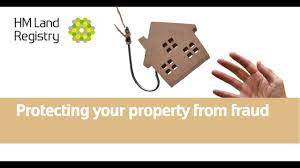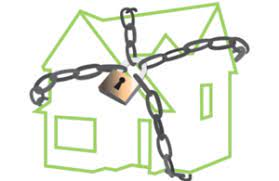If you are a landlord or you own property that you do not live in, then you are more vulnerable to fraud than those living in their own property. Tactics used by fraudsters are becoming more sophisticated so it’s important to be aware of the potential threats and know how to protect yourself.

Identity fraud
As an absentee landlord, you are more prone to identity fraud because there may well be official correspondence/important documents being sent to the property. These can easily be intercepted. Fraudsters can then use them to pretend to be you. They could potentially take out finance agreements for phones etc. or apply for loans in your name.
You are at greater risk of this type of fraud if you rent out your property, your property is empty, the property is being renovated, you live overseas, the property isn’t mortgaged, or if the property is not registered with HM Land Registry.
Property fraud
If someone is able to steal your identity and convince other people/organisations that they are you, there is also the possibility that they may try and sell or mortgage the property without your knowledge (or transfer it into their name).
You may be wondering where these fraudsters can find your personal details. In practice, they can scan your social media/online presence and they can also get property ownership details, lender details, addresses, and even signature samples from the official Land Registry website (if your property is registered there).

There are several ways of making the above much harder for fraudsters.
The first is to sign-up for the Land Registry property alert service. This service monitors Land Registry property records for certain activity that may indicate someone is trying to sell or change ownership or secure a mortgage on the property. Typically, alerts would be triggered when a conveyancing solicitor runs a search against the property/land or a mortgage was taken out.
Option two is to ensure that your property is registered at HM Land Registry. Whilst this may seem counterintuitive based upon the information highlighted above, if you register your property and you subsequently suffer financial losses as a result of property fraud, you will be entitled to compensation through the Land Registry indemnity scheme. It is also crucial to keep your contact details up to date.
The final option available is to place a Form LL restriction on your property. The form LL restriction is designed specifically to help prevent forgery/fraud. It prevents the Land Registry from registering a sale or a mortgage on your property unless a conveyancer/solicitor certifies beforehand that the application was submitted by you. This will nearly always require you to meet with them face-to-face and provide a passport/birth certificate as proof of your identity. This should mean that no one can fraudulently transfer or mortgage your property.
To summarise, your property is the most valuable asset most of us have, so it is extremely important to make sure you protect yourself from unscrupulous fraudsters.